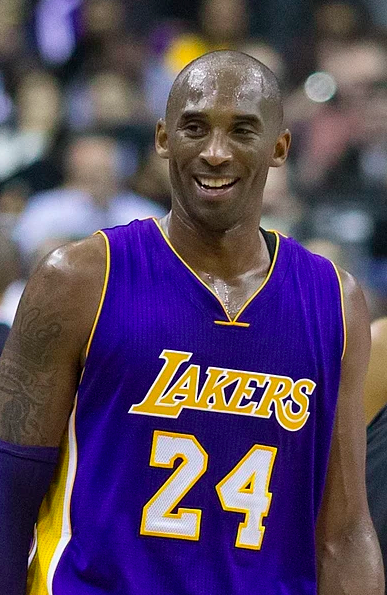By Matteo Venieri
BU News Service
Every kid has a special poster in their bedroom. For me, it was a full size poster of Kobe Bryant, dunking in all his glory and ferocity.
I started watching basketball in the early 2000s – too late to see Michael Jordan’s prime, too early to see LeBron James’. It didn’t take long to identify Kobe Bryant as the best player of his generation.
The quick moves, the explosiveness, the unrelenting desire to dominate his opponents: nobody else in the NBA was like him. Becoming a fan of his wasn’t an option for me. He was my hero.
In his career, Bryant built a legacy like no other. For 20 years he wore nothing but the Lakers’ purple and gold, growing from a skinny 17-year-old into the Black Mamba. The list of his basketball achievements is endless.
Five NBA championships, 18-time All-Star, 15-time All-NBA, two Olympic gold medals and so much more. The two jerseys hanging from the rafters at the Staples Center are a testament to an unparalleled NBA career.
On Sunday, a friend texted me the devastating news. Bryant died in a helicopter crash in Calabasas, California. He was only 41. I kept refreshing my Twitter feed, hoping it was another celebrity death hoax. Instead, the news only got worse. ESPN reported that his daughter Gianna, 13, was also on the helicopter, along with seven other passengers. My heart was broken.
Before Sunday, I had never cried for the passing of somebody famous. I always considered death a private matter, its crushing pain something meant to be mourned far from the public eye. Bryant’s death changed everything.
The shock of his death brought millions of us closer together. From California to China to Europe, we cried together like one big grieving family.

Every generation witnesses the shocking, unexpected loss of at least one cultural icon: James Dean, John F. Kennedy, John Lennon, Tupac. You had to be there to fully understand the tragedy of their departure.
Only 26 days into the 2020s, it’s safe to say that Bryant’s death will define this decade and my generation.
So many of us have a Kobe story. When he announced his retirement in 2015, I was living in Boston, and I knew I couldn’t waste my only chance to see him play in person- even if it meant spending Christmas away from my family.
As I took my seat inside the TD Garden, I was surprised to see how many people were wearing a Bryant jersey. After all, the Lakers-Celtics rivalry is one of the oldest rivalries in sports, and Kobe took it upon himself to make Celtics fans miserable on multiple occasions.
That night he did it again, winning the game almost single-handedly.
But this time, in the wake of his retirement announcement, the usual boos turned into deafening chants. “Ko-be! Ko-be!”
Bostonians had loved to hate him for two decades and he fed off that energy. That night being a Kobe fan wasn’t an option for Bostonians either. He was their favorite antihero.
I like to think that being cheered on by his biggest rivals made him feel uncomfortable.
Bryant’s success didn’t stop on the basketball court. As President Obama said, his second act was going to be as successful as his first. After his retirement, he won an Oscar for best animated short film with “Dear Basketball” and debuted “Detail,” a TV show on ESPN.
He was spotted often lately at NBA and WNBA games with his daughter Gianna, a talented young player whose fadeaway jumper was the exact replica of her father’s. With royal DNA and a legendary mentor, greatness was just a matter of time for her.
To honor Bryant, some fans suggested changing the NBA logo. It would be a fitting tribute. “The Logo” himself, Jerry West, brought Bryant to the Lakers in 1996.
But the best way to carry on his legacy is something that we can all do. It only requires a piece of paper, a trash can and a shout that will resonate through generations: “Kobe!”






[…] death of Kobe Bryant and his 13-year-old daughter Gianna Bryant on Sunday shocked the nation and hit the city of Boston […]
[…] year, Kobe Byrant took home an Oscar for his short film “Dear Basketball.” This year, he’ll be remembered in the […]
You can certainly see your enthusiasm in the article you write.
The world hopes for more passionate writers such as you who aren’t
afraid to say how they believe. At all times go after your
heart.